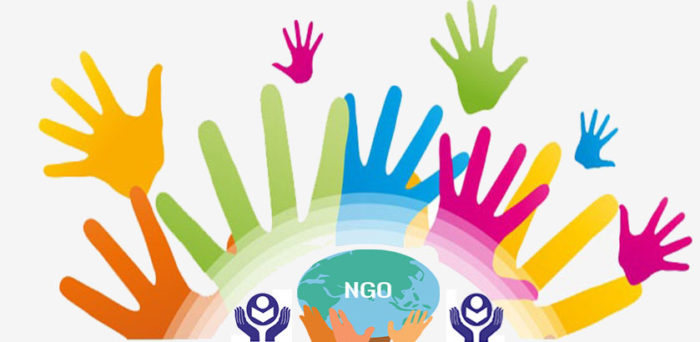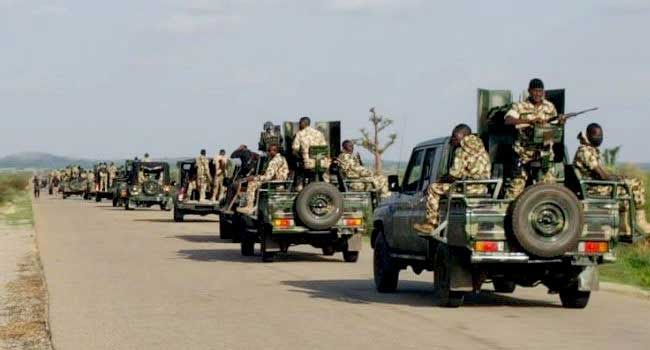By Augusta Uchediunor
The Centre for Citizens with Disabilities (CCD) urges the National Emergency Management Agency (NEMA) and other emergency management agencies to be inclusive of Persons with Disabilities (PWDs) in their response and measures to reduce disasters.
According to CCD, an NGO, disaster is always inclusive and does not discriminate, as such when it occurs, it disproportionately affects persons with disabilities and their families in vulnerable situations.
Mr David Anyaele, Executive Director, CCD, made the call while briefing news men on Friday on the impact of impending flood in some parts of the country on Persons with Disabilities (PWDs).
He said that NEMA, state agencies and partners in emergency management should take appropriate steps to identify PWDs and ensure their inclusion in the planning for support to flood survivors and displaced persons.
“It is an issue that requires to be addressed as a matter of utmost urgency, of which, if not adequately checked, may affect persons with disabilities the most.
“Recognising that disasters is always inclusive and it does not discriminate, as such when it occurs, it disproportionately affects persons with disabilities and their families in vulnerable situations.
“ It further exposes persons with disabilities to increased difficulty as a result of separation from family, loss of assistive and mobility devices, and difficulties with accessing information and relief materials.’’
According to him, in spite various calls by the disability community and organisations of persons with disabilities (OPDs) like CCD on disaster risk reduction and prompt response, most state emergency management agencies fail to adequately plan for or include PWDs in their disaster management activities.
“ This causes severe inequities in access to immediate response.
“As well as long-term recovery resources for persons with disabilities prior to the disaster and those who acquire a disability as a result of the disaster.
“If adequate care is not taken to address these issues by the identified states by its emergency management agencies and governments beforehand, most persons with disabilities will lose their lives and property.
“This is the main reason we are sounding a note of warning through this press conference to avert impending catastrophes that will befall the disability community in the would-be affected states by the impending flooding.’’
The News Agency of Nigeria (NAN) reports that on Wednesday, July 5, 2023, NEMA projected that about 14 states and 31 communities might witness heavy rainfall that could lead to flooding from July 4 to July 8.
Some of the states include Kano, Delta, Kebbi, Plateau, Akwa-Ibom, Sokoto, Kaduna, Adamawa, Kastina, Kebbi, Kwara, Zamfara, Borno, and Jigawa.
Similarly, in February 2023, the Federal Government warned that not less than 178 Local Government Areas (LGAs) in 32 states including Lagos and Federal Capital Territory (FCT) were at a high risk of flooding in 2023.
Anyaele noted that climate change also drastically increased the frequency and intensity of disaster globally, saying that flooding had been the major disaster in Nigeria with deleterious impacts on livelihood, properties and human lives.
He also called for data to show aggregate of PWDs affected by disasters in Nigeria.
“In 2022, Nigeria recorded the most devastating flood events in a decade, claiming over 600 lives, and displacement of 1.3 million persons.
“Although, there was no disaggregated data on the number of PWDs affected yet.
“In a media release by Cable on Jan. 4, 2023, the experience of persons with disabilities during the 2022 flooding event were shared.
“The release highlighted the challenges faced by PWDs and the impacts of poor and non-inclusive emergency/disaster management on their welfare and safety.
“Abu Hajara, a lady using wheelchair from Kogi State narrowly avoided being swept away by the flood;
“ Bisi Akponanabofa, a person with physical disability from Bayelsa had to swim a distance of 200 metres to seek refuge with a lot of trampling along the way.
“Also, Joy Ogbogene, a 36-year-old lady with albinism shared she among other cluster member were exposed to dirty water which later caused skin infections.
“Due to their low vision, they encounter difficulty sighting reptiles transported to their homes and communities through floodwater.’’
Proffering some solutions, he urged NEMA, state emergency management agencies and other relevant stakeholders to awareness campaigns on the inclusion of PWDs in disaster response.
He said that this should be carried out involving organisations of persons with disabilities and disability NGOs.
Anyaele also advised that Local and State Governments officials responsible for emergency management should take appropriate measures to map PWDs in all the wards in the flooding prone states.
According to him, this will ensure that they are not forgotten when flood disaster occurs.
He said that adequate measures should also be taken to ensure that relief materials and other support to displaced persons were distributed without discrimination against persons living with disability.
“State and other emergency management agencies should ensure that all mechanism for data capturing and impact assessment are designed to reflect the needs of persons with different forms of disability.
“ Federal and State Ministries of Women Affairs and Social Development in affected states should provide leadership and coordinate efforts to reach out to PWDs.
“All emergency management institutions should ensure that water and sanitation measures at the relief camps include options that are easily accessible to persons on wheelchairs, the visually impaired and those with other forms of disabilities.
“State and other agencies for emergency management should pay adequate professional medical attention to newly injured or disabled persons to avoid medical complications, secondary disabilities or even fatal outcomes.
“They should equally pay adequate attention to the emotional and social needs of disaster victims to help them overcome normal trauma symptoms, including providing professional psychologists to handle disaster victims.’’
He also advised PWDs, their families and organisations to take the warning of the NEMA very seriously. (NAN)






